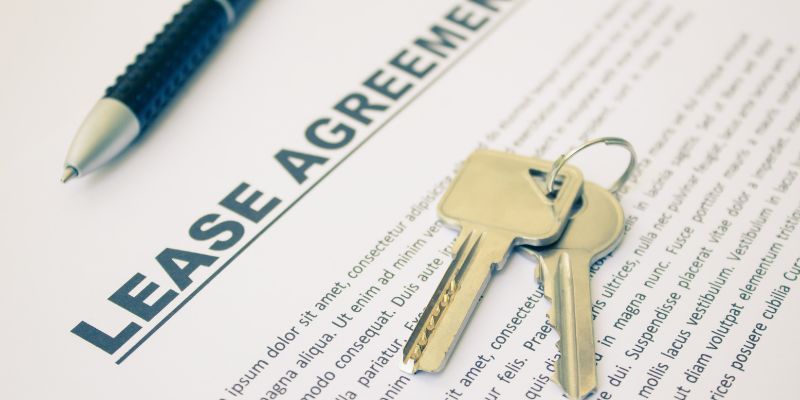Abu Dhabi, the capital city of the United Arab Emirates, is a bustling hub of business and commerce. The city’s rapidly expanding real estate market has attracted investors from around the world, all seeking a piece of the action.
One of the key factors driving this growth is the Musataha agreement, a unique and innovative legal instrument that allows developers and investors to work together to create new projects and opportunities.
Whether you’re a seasoned real estate professional or just getting started in the field, understanding the Musataha agreement is essential to succeeding in today’s fast-paced business environment.
In this article, we’ll take a closer look at the Musataha agreement and explore how it’s shaping the future of Abu Dhabi’s real estate market.
What Is the Musataha Agreement?
A Musataha agreement allows the holder to rent a government-owned property. It grants the holder – often a property developer or investor – the right to construct or plant on the land for a certain length of time, typically ranging from 10 to A Musataha agreement allows the landowner the right to erect a building, change the property, or invest in, mortgage, lease, sell, or buy a stretch of land belonging to a third party for a defined duration (no more than 50 years).
After the time has expired, the right may be renewed one more by mutual agreement of the parties for a duration of up to 50 years.
The concept of Musataha was established across the UAE to assist and encourage investors to embark on more solid and secure real estate developments.
A Musataha agreement often gives the holder more rights, flexibility, and certainty, which may be very useful for those looking to embark on long-term and large-scale real estate development projects.
A Musataha agreement allows the landowner the right to construct a building, change the property, or invest in, mortgage, lease, sell, or acquire a stretch of land belonging to a third party for a defined duration (no more than 50 years).
After the time has expired, the right may be renewed once by mutual agreement of the parties for a further period of up to 50 years.
What Does This Entail for UAE Nationals?
Laws concerning property ownership by foreign nationals tend to be different from one emirate to another. A standard form of the Musataha agreement has been introduced for use within Abu Dhabi for a government-owned property.
Only UAE nationals can hold a Musataha agreement throughout the UAE. Still, they may only be held by non-UAE nationals (and companies owned by them) in designated Investment Areas without the right of ownership of land. They, again, can be no longer than a 50-year renewable term.
Long Lease and Musataha, What Is the Difference?
The majority of land contracts in Abu Dhabi are long leases. However, there are significant distinctions between the two that should be considered since the Musataha agreement provides certain advantages. When you sign a long-term lease, you don’t have any ownership rights.
With a Musataha agreement, however, the holder has the legal right to make permanent modifications on the property – and keep ownership of those improvements for the life of the contract.
Typically, the lessee pays rent to the landowner under a long lease deal. A Musataha contract, on the other hand, allows the developer or investor to split profits with the landowner instead of paying rent.
Long-lease contracts may have provisions for early cancellation or renewal, while Musataha contracts may be more difficult to terminate and may not be renewable. Having said that, a landowner may also apply for a Musataha waiver.
What Is a Waiver of Musataha?
A Musataha waiver effectively restores title to the landowner and terminates the contract prior to its expiration date. This might happen for a number of causes. The developer may be unable to continue with the project for a variety of reasons.
Yet, financial terms are nearly always included in the initial contract, so compensation or penalties may be needed, depending on the reasons for the termination.
In contrast to a lease contract, a Musataha agreement may be bequeathed to the holder’s dependents in the case of death. Moreover, amendments to Abu Dhabi real estate legislation now allow a Musataha contract holder to mortgage the land and acquire a bank loan.
Can I Exchange My Long-Term Lease for a Musataha Agreement?
Yes, as a holder of a long lease contract, you have the option to convert your agreement into a Musataha agreement. However, this process would almost certainly require renegotiating conditions (for example, contract length and rent payments). It will also require the consent of both parties.
What Are the Requirements for Signing Into a Musataha Agreement?
First of all, the land must be initially owned by the government of Abu Dhabi. It will need to identify the parties involved, a description of what is being contracted (in this instance, a piece of land), the conditions, the length, development rights, and termination provisions, just as in any other contract.
Legal assistance is highly recommended to ensure that you understand your rights and duties, and keep in mind that only Emirati citizens are qualified to undertake Musataha with the Abu Dhabi government.
What Are the Fees for a Musataha Agreement?
The Musataha agreement value is determined by multiplying the annual rent (land size (in square feet) x price per square foot) by the length of the agreement. The price per square foot in Abu Dhabi varies by neighborhood. For example, it is 0.75 Dhs/sq ft in Abu Dhabi City and 0.25 Dhs/sq ft in Al Dhafra.
The fee payable on a Musataha agreement in Abu Dhabi depends on land use. 1% of the total annual rent for industrial use and 2% for other uses. The fee is always paid by the owner of the Musataha right (the Musateh).
How and Where Can I Pay My Musataha Fees?
There is a service called “Rent Payment” on the DARI ecosystem. Through this service, the holder can pay their rent, whether they were accumulated dues or paying in advance.





